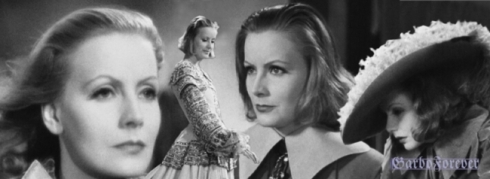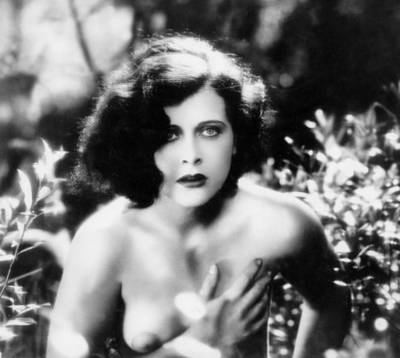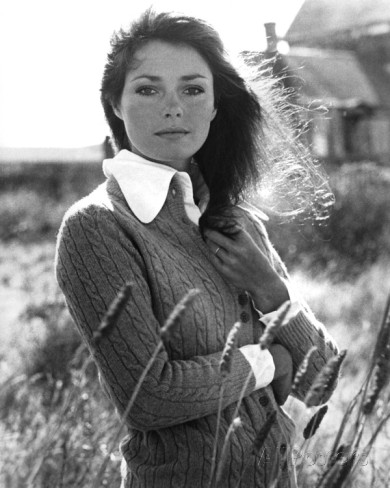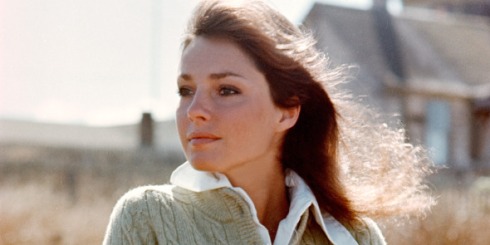
Every Memorial Day is meant to honor the men and women who fought on behalf of our country, many of which paid the ultimate sacrifice for our freedoms. But what about the men and women who are part of our intelligence community who are never publicly honored or even known about? Lost to history are the exploits of individuals whose participation was so top-secret that their assignments are classified to this day. The following story is about Agent Cynthia, who was recruited by the pre-CIA, or Office of Strategic Services, the first American Intelligence Agency FDR created during World War II. Smart, sexy and in a position to save hundreds of thousands of lives through her espionage work, Amy Thorpe Pack was the most successful female spy of her time, arguably any time – yet her story has rarely if ever been told. In fact, the following account is still officially classified until 2041 by the United States and Britain Secret Services for reasons unknown.

June 21, 1942: The exact same moment Humphrey Bogart and Ingrid Bergman were on Warner Bros. Burbank, California studio lot shooting Casablanca, a tiny band of spies entered sovereign Vichy-French territory on a secret mission to liberate the real Casablanca. Far from North Africa, the black ops team comprised of a former D.C. debutante-turned-spy, her Vichy-French lover, a safe-cracker and their OSS (pre-CIA) handler, broke the FBI’s strict law forbidding espionage within city limits and infiltrated the Vichy French Embassy in wartime Washington D.C.
Joint Chiefs of Staff: “Obtain the Vichy Naval Codes”
After Hitler invaded France in May, 1940, President Roosevelt shrewdly maintained diplomatic relations with Vichy, allowing France to retain an embassy in D.C. This embassy received daily encrypted cables from Nazi Germany about Hitler’s plans for the French Fleet and his forces in North Africa. America and Britain already possessed the technology to intercept these communiqués, but without the embassy codebooks needed to decode them the communiqués were useless.
Breaking into a foreign embassy to steal codebooks constituted an act of war. J. Edgar Hoover’s bureau boys were ordered to protect all embassies and officers of a foreign power from espionage, even America’s own. Ironically, all Federal Agents were forbidden to enter Capitol Hill unless expressly invited. However, Foreign Agents (i.e. spies) could enter at will. So Roosevelt recruited his friend General William “Wild Bill” Donovan to form the Office of Strategic Services, precursor to the CIA. Donovan assembled a special team to infiltrate the target embassy.
Agent Cynthia
Amy Elizabeth “Betty” Thorpe (aka Agent Cynthia) was born to an affluent family. Her father, George Cyrus Thorpe, a U.S. Marine Corps major and prominent maritime lawyer, moved the family from Minnesota to D.C. when Betty was six. Her mother, Cora Wells Thorpe, daughter to H.H. Wells, a U.S Senator from Morris, Minnesota, became a prominent and influential Washington socialite. Once one of the capital’s most glamorous debutantes, young Betty is remembered by Shirlee C. Thorpe, her former sister-in-law and a D.C. resident, as “gorgeous” and “mischievous.”
In the cloak and dagger world of espionage, Agent Cynthia was recruited first by the British and then the American’s as a swallow – an agent who used sex as a tool to obtain the enemy’s military secrets.
Agent Cynthia moved her swallow’s nest to Wardman Park, the posh residential hotel located at 2660 Woodley Rd NW. The Wardman, large and with multiple entrances, would frustrate the FBI’s surveillance efforts of the OSS Agent. The hotel was also the home of Cynthia’s target – the Vichy Press Attache, Charles Brousse.
Posing as a sympathetic American journalist, Cynthia made quick work of the older married man: “He planted a long, passionate kiss on my lips and pressed my back against the door until I was limp. Then he swung me easily off the floor and started to carry me up the stairs. He looked at me hungrily. “Just point out your bedroom,” he said. “You have nothing to fear, chérie.” As a lover, Charles Brousse was the most ardent of all those I met in my career as a spy…”
Charles, having fallen madly in love, provided Cynthia with daily copies of decrypted embassy cables, which were sent immediately to the White House. President Roosevelt, fluent in French, often didn’t wait for the cables to be translated before reading them. Cynthia and Charles even collaborated on reports, which the president read “as a bedtime story” and called, “the most fascinating reading I have had for a long time…the best piece of comprehensive intelligence I have come across since the last war.”
When Cynthia asked Charles for the codes for decrypting themselves, her French lover balked – remarking that what she wanted was impossible. Undeterred, Agent Cynthia solicited the Chief Cipher Officer of the Embassy, Count Jean de La Grandville. Young, ambitious and arrogant, the Count received Cynthia alone in his suite at the Shoreham Hotel while his wife was in the Virginia countryside giving birth to their second child. Cynthia offered the Count money in return for the code books. But De La Grandville had other ideas in mind and remarked on how a pretty woman should not concern herself with such things. Cynthia was not amused. She left him with her hotel phone number and the caveat that, if he was going to be serious, he could ring her the following night.
Cynthia was taken aback to find Count de La Grandville in the Wardman Park lobby upon her arrival home the next night. Unsure what to do, Cynthia brought de La Grandville up to her suite. Her control of the situation deteriorated when the Count informed her he had uncovered her true identity – that of Betty Thorpe Pack, estranged wife of a British diplomat.
Cynthia had kept her marriage a secret from everyone. Her cover blown, the compromised secret agent then made the only major tactical mistake of her illustrious career. As she recounted in her memoirs: “He wanted to be “sure” of me. I replied that I did not know what he meant, that I was a trustworthy American agent, and that I had made him a straightforward proposition. He said that he appreciated all that but ‘love-making forms a bond’ and that he wanted this bond…so I closed my eyes and hoped that this, like so much else that I wanted to do, would be for (the Allies).”
Afterward, Cynthia surmised she was duped. De La Grandville had no intention of producing the codebooks. What’s more, the duplicitous Frenchman planned to turn her in to the French Ambassador come first light. The seductress had allowed herself to be sexually blackmailed by a novice.
As if matters couldn’t get worse, Charles Brousse rang her from his suite inside the hotel to say he would be over momentarily. Agent Cynthia could not get de La Grandville out of the hotel fast enough, and the Vichy officials passed one another in the hallway outside her suite. In an instant, Charles knew Cynthia had been unfaithful. He exploded in a jealous rage and became physically abusive. “It was a very thorough thrashing, and from his point of view, one that I richly deserved.”
Badly bruised and bleeding, Cynthia fled the hotel and stumbled across the famous William Taft Bridge, more commonly known as Connecticut Ave. Bridge. It was only by sheer luck that an FBI surveillance team was not in the area to witness the distraught agent enter her mother’s deserted apartment at 2139 Wyoming Ave. – three doors down from the Vichy Embassy itself. Cynthia fell into a fitful sleep: “I drifted off into a half-sleep and a dream of “penetrating” the French Embassy again through a window, obtaining the ciphers and dispatching them to my Chiefs with the improbable aid of a well-trained B.S.C. flock of carrier-pigeons!”
The next morning, an apologetic Charles arrived at Cynthia’s mother’s doorstep. He was surprised to find the female spy more emboldened than ever. She told Charles, “While I was dozing at Mother’s I had a dream and am going to work out something around it. I am far from lost as far as the project is concerned, but it would be catastrophic if I were “burnt”. Everything depends on you to get me out of the mess that I really feel I am going to be in.”
Sure enough, at that very moment across town, Count de La Grandville arrived at the home of Gaston Henry-Haye, the Vichy Ambassador, to tell him about the beautiful agent and her botched spy mission. What the young Count didn’t know, however, was that Charles possessed incriminating evidence on the Ambassador himself, thanks to surveillance the OSS provided Cynthia. Charles used this information to paint the Count as the real security risk and told Henri-Haye of rumors de La Grandville had been spreading about the Vichy Ambassador’s own illicit affairs.
Charles played his hand well, so well that de La Grandville was removed from the code room. Cynthia’s cover and the mission were spared. However, they were still no closer to acquiring the codes, and time was running short. Hitler’s grip on North Africa and the remaining French Fleet was tightening. The Vichy codes were now needed more than ever.
A Dangerous Solution
Cynthia appealed to her OSS handler, Agent Hunter, that there was only one remaining alternative – a black bag job; espionage parlance for an illegal break-in. But a black bag job of a foreign Embassy was fraught with risk and very real danger. If they were caught, it would constitute a state of war between Vichy-France and the US. Besides the FBI, who suspected Cynthia of being a spy and surveilled her night and day, there was also the notorious Vichy Secret Police to consider. Operating within the US and Canada, their duty was to report on anyone of French descent aiding the Allied cause. Should Charles be caught, torture and death would surely follow and even his relatives in France would not be spared.
But Cynthia needed his help if she was to have any chance of gaining entrance to the heavily-guarded code room. Charles agreed to help, risking his own life. And to pull off the risky heist, they would need a professional safecracker who could gain access to the Embassy’s safe where the Nazi codebooks were kept.
Enter the Georgia Cracker
One of the greatest secrets still surrounding World War II was the number of criminals who were recruited into secret service directly out of jail, for the same skills that put them there. One such colorful con was a safecracker known only as the “Georgia Cracker.” He was released from prison in return for work on dangerous missions.
The Georgia Cracker joined Cynthia, Charles and Hunter, and the black-bag plan was finalized. By early June the date was set for the break-in. But first each had to swear an oath that if caught none would implicate the OSS or its British equivalent, the BSC. To be safe, both General Donovan and Intrepid (William Stephenson, head of the British Security Coordination operating in the US) left the country.
On the night of June 19, 1942, the same night British Prime Minister Winston Churchill’s flying boat put down on the Anacostia River to attend the Second Washington Conference at the White House – Agent Cynthia crossed Connecticut Ave. Bridge with Charles. The two continued up Connecticut Ave. and made the familiar right turn onto Wyoming Ave. The reconciled lovers walked up the steps of the Embassy like they had done for several nights prior and greeted Andre Chevalier, the night guard. Cynthia tried not to show it, but she was wary of his dog – a large Alsatian that had been written up in a local newspaper for excessive barking at night.
The couple brought with them several bottles of champagne, on the pretense that tonight was the anniversary of their first meeting. Cynthia playfully coaxed the guard into joining them for a toast. When he wasn’t looking, she introduced a generous dose of Nembutal (a sleeping agent) into his glass. Twenty minutes later the guard was sound asleep, and Cynthia then dosed the dog as well. Given the all clear, the Georgia Cracker entered through the front door, stepped over the sleeping dog, and headed down the hallway to pick the lock to the code room. Within moments, the three of them stood in front of the safe containing the codebooks. Cynthia checked her watch; it wasn’t yet midnight.
Cynthia and Charles sat down on the divan in the private hallway outside his office and smoked, waiting nervously for the Georgia Cracker. Minutes turned into hours. The Mosler-brand safe was old, its four tumblers rusty. By the time the Georgia Cracker cracked the combination and turned the handle to open the safe door, it was perilously close to dawn, too late to copy the ciphers and have them back before the Embassy staff began their workday.
Cynthia watched helplessly as the convict closed and relocked the safe, careful to remove his fingerprints with a cloth. Within the hour, she and Charles were back in her nest. She telephoned her handler to give him the bad news. Charles showered and returned to the Embassy to begin his day. Fortunately, aside from a brutal hangover, the guard and his dog were unharmed and none the wiser.
Running Out of Time
Agent Cynthia was given the go ahead to make another attempt the following night, but now there were two serious complications. The first was that they couldn’t attempt to drug the guard again, for fear they would arouse his suspicion. The second was that, incredibly, the Georgia Cracker was sent off on another mission and temporarily unavailable. Cynthia would have to open the safe by herself, using the combination the Georgia Cracker had written down for her. Another agent would be outside the code room window, ready to receive the codebooks and take them to be copied.
Night came slowly on June 21st. Charles and his spy mistress once again set out for the Embassy. Once again, the guard was waiting for them and let them in. Once again, the handsome couple smoked and made friendly conversation with him before retiring to the divan. They waited for over half an hour for the guard to finish his rounds. As Cynthia began to pick the code room lock, a nervous Charles asked her what to say should the guard appear and inquire about her whereabouts. “Tell him I’ve gone to the toilet,” she said.
Cynthia picked the lock and entered the code room with remarkable ease. She took out the piece of paper on which the Georgia Cracker had written the safe combination and set about turning the dial: 4 left 5; 3 right 20; 2 left 95; 1 right 2; stop. She then tried the handle on the safe, but it wouldn’t budge. Cynthia began to sweat: “The damned thing won’t open.” She tried the combination again and again, but the safe refused to open. She joined an exasperated Charles back at the divan. They left the Embassy empty-handed, forced to abort the mission.
Nerves were wearing thin for everyone. Cynthia was ordered by her handlers to travel to New York: “I arrived at my Chief’s flat at about eight o’clock and from there set out in a cab for the long ride downtown. I had no idea where we were going nor was I much enlightened when we drew up at an intersection of Broadway and he said: “Hop into that black car standing by the curb, and come back to the flat before returning to Washington.”
Cynthia did as she was told and was greatly relieved to find the Georgia Cracker waiting for her in the next car. “I have never, repeat never, been so glad to see anyone in my life, I told him.”
The two set out for a remote stretch of Jones Beach and stopped the car. The Georgia Cracker ordered Cynthia into the back seat. There, under the seat, was an exact replica of the Vichy safe. Teacher and student spent the next several hours ‘cracking’ it. Once the Georgia Cracker was satisfied Cynthia could open the safe, they returned to the city. But once back, Cynthia was adamant that the Georgia Cracker accompany her on the next attempt on the Embassy. True to form, Cynthia was impossible to resist. Both she and the Georgia Cracker returned to Washington.
One Final Attempt
A first-quarter moon hung over the Capitol the night of June 23rd as Cynthia and Charles made their last trek across the familiar bridge. “But as we turned the corner from the main avenue to the smaller one leading to the Chancery, I noticed two FBI cars parked at a discreet distance from our destination. They were half-hidden in the shadows of the trees, and their lights were dimmed.”
Cynthia grabbed Charles by the arm and led him away from the streetlamps. They made their way to the Embassy doors and scurried up the stairs, only to find the Embassy guard missing from his post. Charles used his own key to enter the Embassy. They waited anxiously on the divan, wondering whether the night guard might be an informant for the FBI. Was this a trap?
To Charles’s astonishment, Cynthia made a sudden radical decision. “I left the divan and took off my dress, tossing it onto the floor in the middle of the hall. Then I took off my slip and threw it in the same direction. It was followed by my brassiere, my panties, along with my garter belt and stockings; I was now quite naked except for a string of pearls and my high-heeled shoes.”
Her timing was perfect. Just then the door behind her opened and her body was bathed in the beam from the night guard’s flashlight. Embarrassed, the guard muttered a quick apology and withdrew, leaving Charles and his Lady Godiva to resume their work.
Cynthia remained au naturel as she signaled to the Georgia Cracker to enter through the window of Charles’s office. The second-story man got an eyeful as the naked agent led him to the code room where he quickly picked the lock. She held his flashlight on the dial of the safe as he worked the combination. Within moments the safe was open, the codebooks theirs for the taking. Cynthia pressed them to her naked bosom and walked over to the window, where an OSS agent was waiting to spirit them away.
Cynthia turned back to the Georgia Cracker, and with sincere gratitude, embraced him. She bid the lovable con man goodbye, then returned to Charles at the divan. Cynthia dressed, and the two settled in for a long night of waiting.
Cynthia chain-smoked Capstan cigarettes, her favorite brand, as her imagination considered every contingency. What if the guard became suspicious and forced them to leave? Who would put the codebooks back in the safe? They could knock the guard out and kidnap him. But then the Embassy personnel would know the codes were compromised. What of the G-men outside? At any moment, they could storm in and take her away for interrogation. After all, the Embassy was in their jurisdiction. They already suspected her of being a spy.
She tiptoed to the window and peeked out from behind the shade. Sure enough, there they were, hidden in the shadows across the street. “I went back to the divan and sat down in an attempt to persuade myself that “sweating it out” wasn’t so bad really, and that surely the boys at the front were having a worse time than I. Anyhow, there was now only another half hour until I would take up my post at the door.”
At five minutes to four, while the night guard was off making his last rounds, Cynthia was at the door and saw the OSS agent approach the Embassy. She reached out and grabbed the books from him, then turned and cautiously ran for the code room. She purposely did not wear lipstick, in order to kiss each codebook for luck before she returned it to the safe. Then she was careful to wipe away all trace of her presence as the Georgia Cracker had taught her. Moments later, she and Charles walked hand in hand down the Embassy steps. Even if the Bureau boys saw them now, they could prove nothing.
Back at her swallow’s nest later that morning, Cynthia heard a knock at her door. She opened it to find Agent Hunter, smiling and smartly dressed in a U.S. Army summer uniform. Cynthia followed Hunter to the other end of the hotel. He led her into a room full of military personnel, surrounded by photographic equipment and hundreds of papers covering the furniture. They were photostats of the Vichy codebooks. This was where they had brought the books to be copied – down the hall from her very own nest. Cynthia looked at the crystal clear prints of the secret ciphers and smiled to herself.
“Altogether, it was the proudest moment of my life.”
November 8, 1942, Washington, D.C.: Agent Cynthia was boarding a train bound for New York when she saw the morning paper carrying the headline “Allies Storm North Africa!” She then looked up to see a handsome, uniformed man admiring her. She smiled instantly, having recognized her old spy handler. Agent Hunter stood at attention and saluted her. Then he approached and whispered in her ear:
“We have reached a turning point in the war. The allied troops have landed in North Africa, with practically no enemy resistance. The reason that there was no resistance is a military secret, but I think you should know that it is due to your ciphers. They have changed the whole course of the war.”
General Dwight D. Eisenhower, Supreme Commander of Operation Torch, and 107,000 Anglo-American troops landed on the shores of North Africa in a surprise attack. The battle that had begun on a tiny piece of sovereign Vichy soil located in Washington D.C. less than five months prior, concluded in the liberation of Casablanca, Oran and Algiers in less than three days. The decisive victory put an end to Hitler’s dominance on the continent, deprived Germany of the French fleet and shortened the war itself.
Back in Los Angeles, Jack Warner and producer Hal Wallis rushed the opening of Casablanca to capitalize on the headlines. The movie premiered November 26, 1942 and went into full-release the following year. Bogart and Bergman are immortalized as Rick and Ilsa. Meanwhile, Agent Cynthia has been all but forgotten. But the World War II Mata Hari didn’t seduce the enemy for fame or fortune. Hers was a much higher calling:
“I did my duty as I saw it. It involved me in situations in which respectable women draw back. But wars are not won by ‘respectable’ methods…I hope and believe I was a patriot.”
Tags: Agent Cynthia, Amy Elizabeth Pack, CIA, Espionage, FBI, FDR, Osama Bin Laden, Seal Team Six, Spies, WWII











































